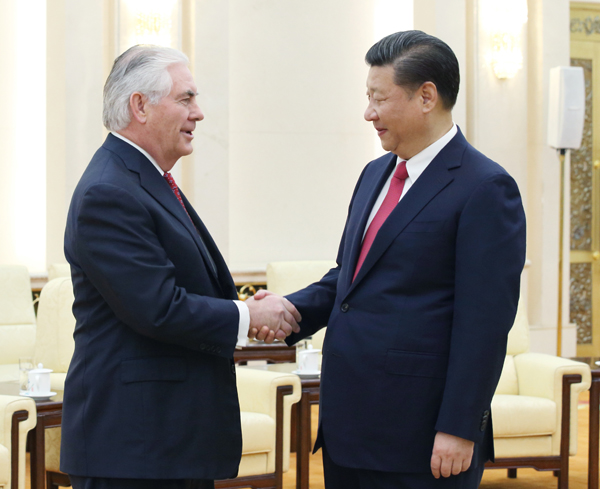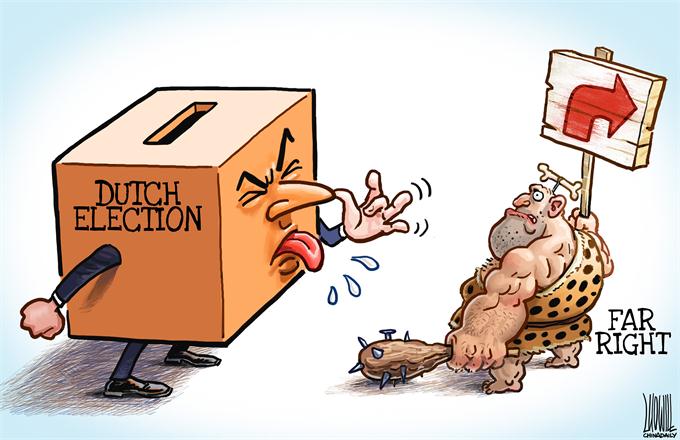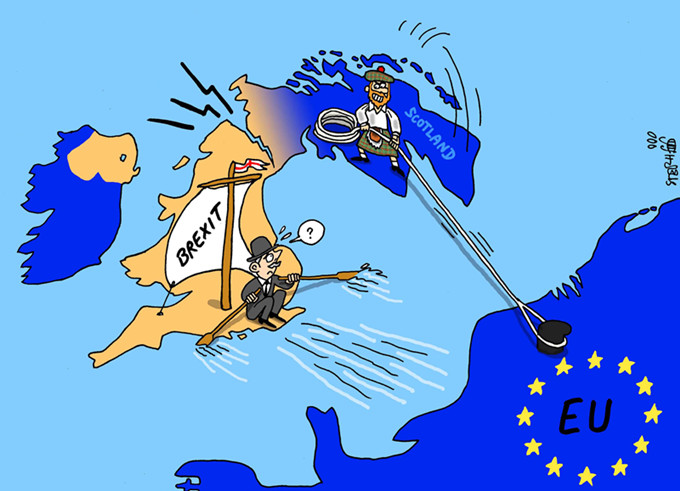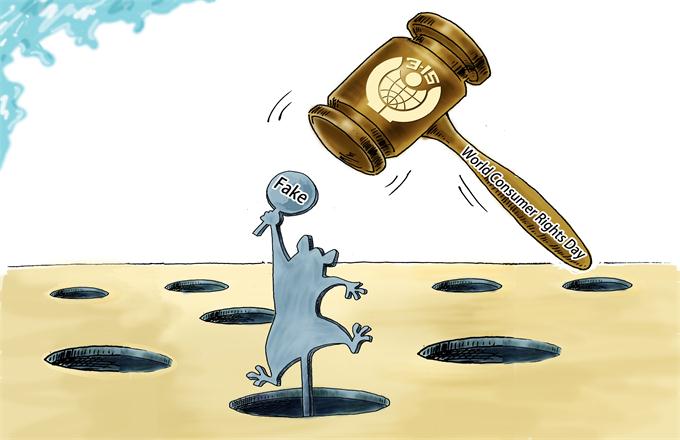Possible to be good partners if things are straightened out
 |
|
President Xi Jinping tells visiting US Secretary of State Rex Tillerson that the nations should enhance exchanges at all levels. They met on Sunday at the Great Hall of the People in Beijing. [Photo/Xinhua] |
A meeting between Xi Jinping and Donald Trump would serve the imperative need for ironing out bilateral ties ruffled repeatedly by the disruptive, sometimes confusing, postures of the recently inaugurated Trump team. Both the lingering sense of uncertainty regarding China-US relations and the dangerous state of affairs on the Korean Peninsula call for one.
Xi and Trump have talked twice on the phone, providing a timely sense of clarity when suspicions threatened to mislead policy choices. But talking face to face will certainly be more conducive to the kind of constructive interaction the relationship badly needs at this critical crossroads.
Xi chose to focus on the "important opportunities", rather than the broadly perceived, potentially inflammable challenges, facing bilateral ties on Sunday when meeting Tillerson.
And while Xi accentuated that the countries "have every possibility to become very good cooperation partners", Tillerson assured Xi of the Trump administration's commitment to the principles of "no confrontation, no conflict, mutual respect, win-win cooperation".
Besides anchoring the recently volatile relationship, a meeting between the two leaders would provide a clearer sense of direction. Not to mention Beijing and Washington need face-to-face dialogue at the highest level to coordinate stances and actions on the Peninsula issue.
With Tillerson declaring the "policy of strategic patience has ended" and a military response is an "option on the table", Beijing's call for Pyongyang to suspend nuclear/missile activities in exchange for Washington to halt joint military exercise with the Republic of Korea may not ring a bell with either of them.
Things appear especially difficult for Beijing because, while it tries to continue playing the "switchman" in the risky task of what Foreign Minister Wang Yi described as preventing the imminent head-on collision between two "accelerating trains", the US president has just repeated his accusation that Beijing has "done little to help" in stopping Pyongyang.
Ironically though, Washington is asking Beijing to help alleviate its own security concern while putting Beijing in harm's way.
While rushing the Terminal High-Altitude Area Defense system, which Beijing identifies as a security threat, into the ROK in disregard of Beijing's protests, Washington is reportedly plotting a new, bigger arms sales package to Taiwan.
Clearly the two leaders still have plenty to straighten out when they meet.



















